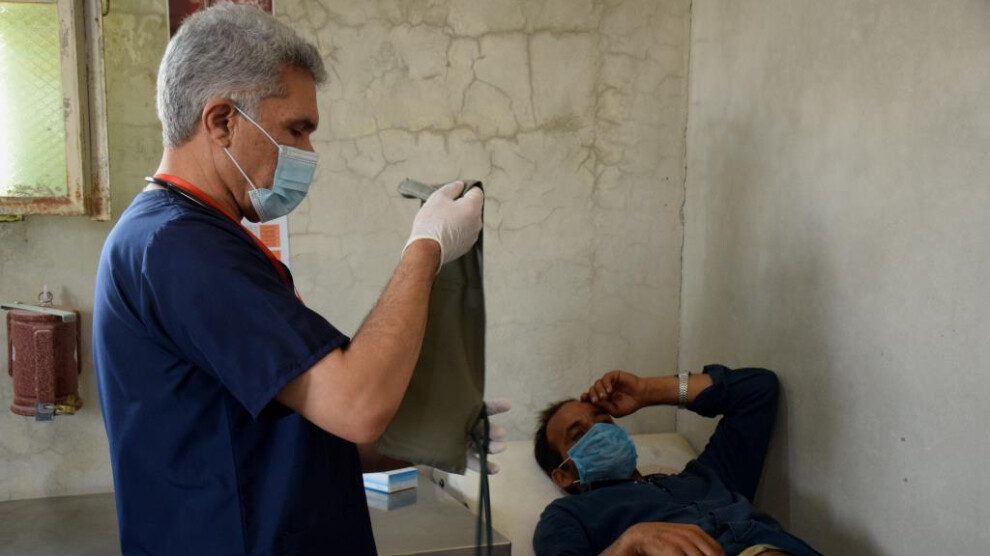Polluted water leads to poisoning cases in Kobane
Poisoning cases have increased in Kobane in recent months due to contaminated water. People of the region are facing a humanitarian disaster as it is getting warmer.
Poisoning cases have increased in Kobane in recent months due to contaminated water. People of the region are facing a humanitarian disaster as it is getting warmer.

The water pollution caused by the invading Turkish state's water reduction in the Euphrates River continues to jeopardize public health. Rising temperatures and polluted water in the region have caused poisoning cases.
'WELL WATER IS SALTY, TAP WATER IS DIRTY'
A citizen named Mihemed Faris, who was poisoned due to dirty water and is currently being treated at the health centre in Al Qinayê, made remarks about the situation. “Our lives are in serious danger. We have suffered a lot due to dirty water. We are experiencing many problems such as nausea and vomiting. Since the well water is salty, we cannot consume it either. We hope that the Euphrates water will flow again so that we can get rid of the approaching humanitarian catastrophe.
“The people of the region are poisoned every year in this season. However, this year, there has been an increase in poisoning cases because of the salty well waters in the region,” Al Qinayê Health Centre Director Dr. Umer Feyad said.
“The first thing to do is to clean the Euphrates water with chlorine. If this is not done, the poisoning cases will increase in the coming days.”
CAUSES OF POISONING
There are many reasons for poisoning. While one of these is the pollution caused by the decrease in the Euphrates water, another is the power cuts in the region due to this decrease. Due to power cuts, food cannot be stored in refrigerators and gets rotten, which leads to poisoning. The third reason is that the region is suitable for agriculture, but the lack of water has led to a decline in agriculture this year.
Umer Feyad called on the local people living in the region not to drink the Euphrates water directly, to consume the food daily so that both food spoilage and waste are prevented.
According to the data published by the health centre in Al Qinayê district, 350 poisoning and 250 diarrhea cases were recorded this month. While 300 poisonings and 270 diarrhea cases were registered in May, 400 poisoning and 325 diarrhea cases were detected in June.